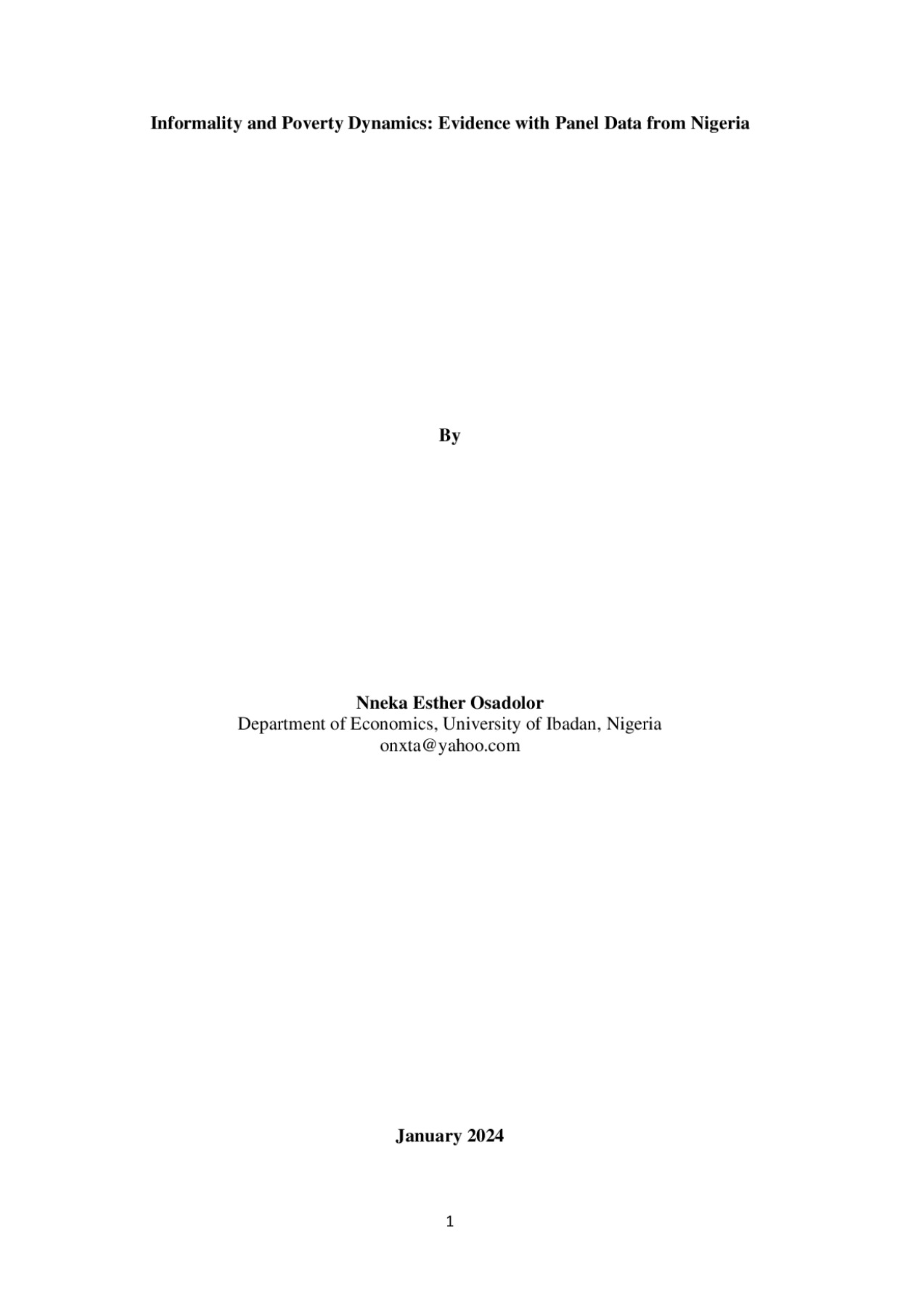2024 African Meeting, Abidjan, Côte d'Ivoire : June, 2024
Informality and Poverty Dynamics: Evidence with Panel Data from Nigeria
Nneka Osadolor
In Nigeria, informality has been on a persistent rise with an increasing number of people engaging in informal employment. Similarly, the rate of poverty and extreme poverty in the country has also been on the rise, an occurrence more evident among the working poor. However, not much is known empirically about the dynamics of both informality and poverty within the Nigerian context. Using panel data from the four waves of the Nigeria General Household Survey (GHS), this study employs the random effects panel regression model to assess the poverty implications of mobility across informal employment types, while also exploring the dynamics of informality and poverty, respectively. The results of our analysis indicate that although work is important, the quality of the work is much more crucial for the welfare of those engaged. Specifically, we find that whereas, transition between all forms of employment is negatively associated with poverty, household heads who transition from formal to informal employment are 0.8 times less likely to move above the poverty line than those who remain in formal employment. Our findings also show that persistence in informality in the country is more evident among own-account workers.
Preview








































